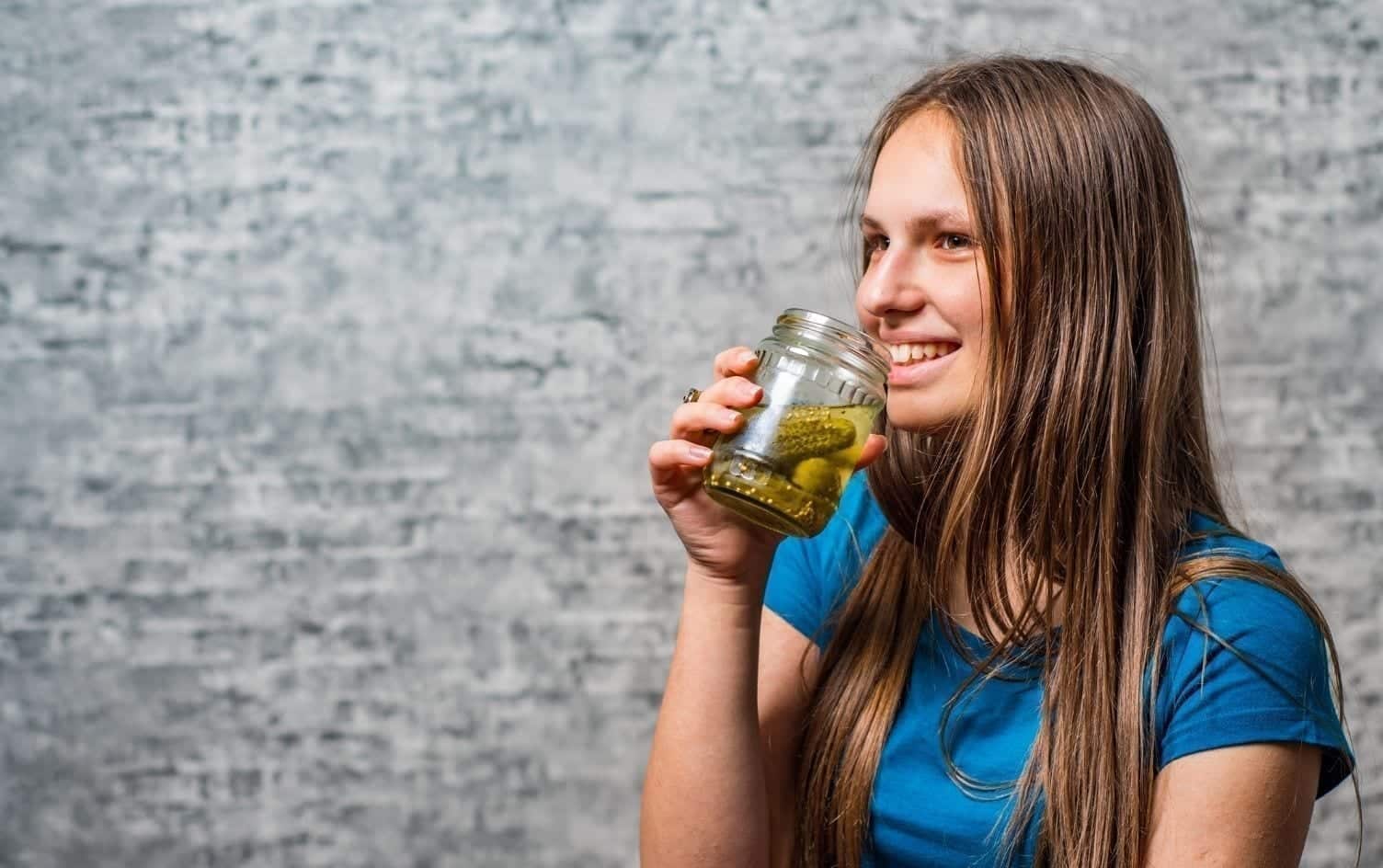If you haven’t heard yet, pickle juice is trending in the fitness world as a potential substitute for traditional, sugary sports drinks. Pickle juice’s popularity has spiked in recent years, as athletes look to replace sodium and prevent cramping during endurance activities. “Many athletes sweat a lot when training, and that can lead to increased losses of fluid and electrolytes like sodium,” says Amy Goodson, MS, RD, a board-certified specialist in sports dietetics. “Pickle juice can provide athletes with a lot of sodium in just a swallow or two.”
SODIUM IN PICKLE JUICE
Over the past decade, scientists have periodically researched the efficacy of pickle juice for athletes. A 2010 study found pickle juice reduced muscle cramps due to dehydration more quickly than water, relieving cramps just 35 seconds after ingestion.
This may be due in part to sodium. Goodson says pickle juice contains approximately 855mg of sodium per fluid ounce. “This can help athletes replace what’s being sweated out.”
VINEGAR IN PICKLE JUICE
However, another study found ingesting pickle juice after exercise did not fully replace the lost sodium. So, while the sodium infusion may be beneficial, there could be another factor at play: vinegar.
READ MORE > CAN APPLE CIDER VINEGAR FIX ALL YOUR PROBLEMS?
The same 2010 study suggested it was the vinegar, not the electrolytes, in pickle juice that inhibited cramping by sending a signal to our brains telling our muscles to relax. In this case, other vinegar-heavy products may also be helpful for cramping. You could even slurp down a few mustard packets while you run. But one of pickle juice’s primary benefits is it’s easy to drink — whether you’re draining juice straight from a jar or consuming one of the pre-packaged bottles readily available mid-race.
SHOULD YOU TRY IT?
Assuming your body doesn’t react poorly to acidic foods and drinks, pickle juice is unlikely to have any detrimental effects. But that doesn’t mean you necessarily need it.
“It’s important to note that not all exercisers need pickle juice,” says Goodson. She advises that it should really be reserved for those who sweat a lot and are “salty sweaters,” which means you lose more sodium through sweat than the average person. “If you have white on your shoes or hat after you train or your sweat burns your eyes or tastes salty, it is likely you are a salty sweater and might need to supplement with more sodium than the general recommendation.”
HOW MUCH PICKLE JUICE SHOULD YOU DRINK?
Most pickle juice doses are more anecdotal than scientific, although one study gave participants 2 milliliters per kilogram of body weight. That’s about 4 1/2 ounces for a 150-pound person. If the reason pickle juice works is actually due to vinegar, not sodium, then smaller doses may prove effective.
But regardless of how athletes choose to fuel their training, finding the right balance between hydration and electrolytes is important for performance.
“If you have issues with cramping or recognize some of the other symptoms mentioned above, then adding some sodium to your training regimen could be warranted, and pickle juice can be an easy way to do that,” says Goodson.
Check out “Workout Routines” in the MyFitnessPal app to discover and log workouts or build your own with exercises that fit your goals.




